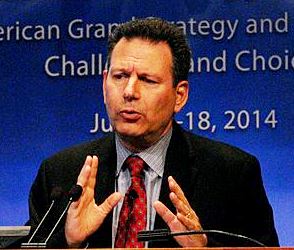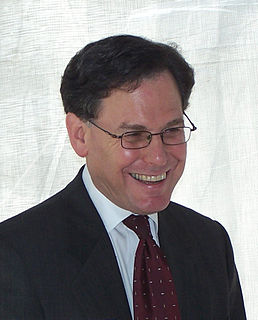A Quote by Robert D. Kaplan
It is time to understand the environment for what it is: the national security issue of the early twenty-first century.
Quote Topics
Related Quotes
Of course the issue of ending war, and creating prosperity; they're overarching issues all the time. But right now, the challenge to this generation I believe is the climate crisis. It's a national security issue, it's a health issue in terms of clean air, it's a competitiveness issue in terms of innovation and it's a moral issue to preserve the planet for the next generation.
Throughout the twentieth century and into the beginning of the twenty-first, the United States repeatedly used its military power, and that of its clandestine services, to overthrow governments that refused to protect American interests. Each time, it cloaked its intervention in the rhetoric of national security and liberation. In most cases, however, it acted mainly for economic reasons-specifically to establish, promote and defend the right of Americans to do business around the world without interference.
We have a media that goes along with the government by parroting phrases intended to provoke a certain emotional response - for example, "national security." Everyone says "national security" to the point that we now must use the term "national security." But it is not national security that they're concerned with; it is state security. And that's a key distinction.
To me, freedom of speech and debate are necessary inputs in solving any of our nation's problems, from homelessness and economic inequality to banking, the environment, and national security. Freedom of speech is what Larry Lessig would call a 'root' issue; working on free speech is striking at a root issue.
We have reached a pivotal time in Indigenous affairs when for the first time, national attention is being paid to the horror of Indigenous family violence in this country. For the first time, an Australian Prime Minister has held a summit in the national capital to listen to concerns and ideas on this issue from a group of Indigenous leaders.
The National Security Council assists the president by ensuring that he receives the best views and options from the various departments and agencies on any given issue. The ultimate policies are, as they should be, then decided upon by the president - not by the NSC staff or the national security adviser.

































